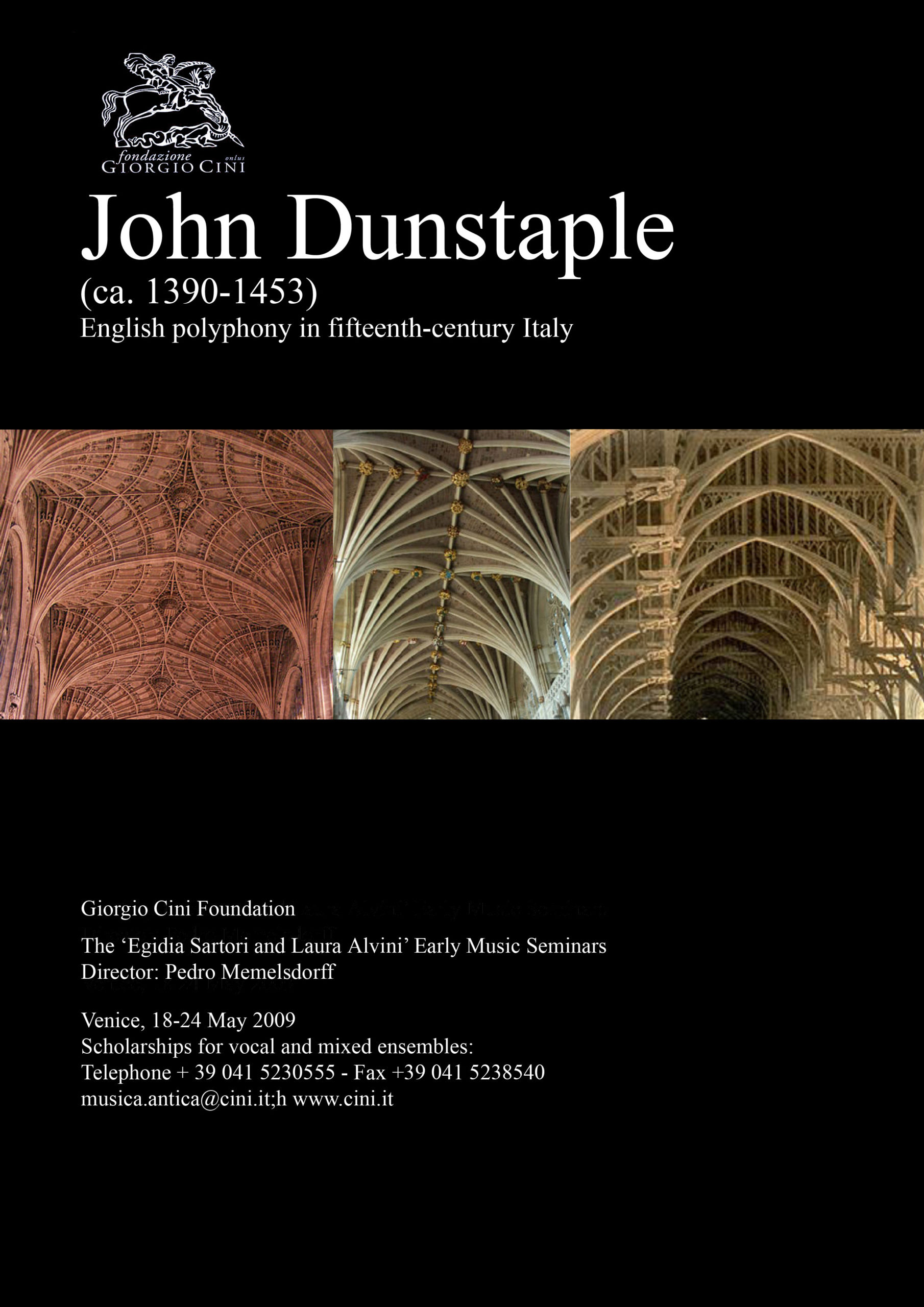
Early-Music Seminars 2009 | John Dunstaple 1390-1453. English polyphony in 15th-century Italy

This year’s Early Music seminar is dedicated to the work of John Dunstaple (c. 1390-1453), an English mathematician, astronomer and composer who exercised a remarkable, crucial infl uence on polyphony in the early Italian and European Renaissance. In fact most of his works are now in Italian sources, at Trento, Modena, Aosta and Bologna. This has made it possible for scholars to study not only the great popularity of the composer, but also the “mindset” of his local transcribers.
Dunstaple’s work includes fi ve cycles of ordinary and 14 isorhythmic motets, plus over 25 non-isorhythmic motets used for liturgical or paraliturgical purposes: hymns, sequences or antiphons, usually Marian. In the latter, the image-based metaphorics of the Song of Solomon is often used or rather “transformed” (a key topic in the
seminar).
The impact of the work of John Dunstaple and his compatriots in early-Renaissance Italy will thus be the focus for discussion during the seminar and on the International Study Day 2009, at the end of which, on May 23rd, a final concert will be given. The following morning a round table will be attended by the guest scholars.
